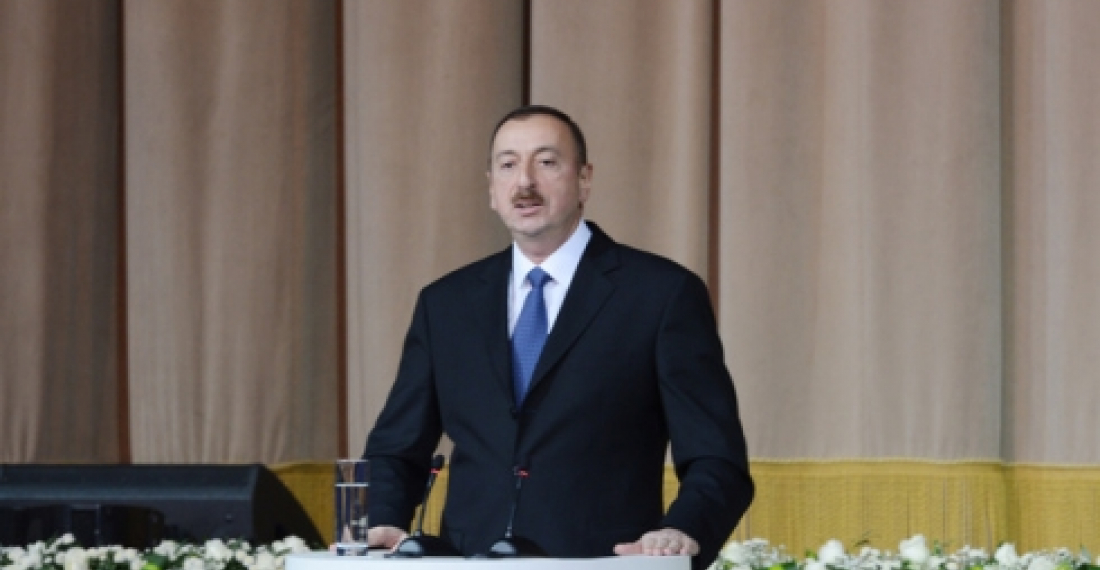Azerbaijan's ruling party, The New Azerbaijan Party (YAP), has celebrated the 20th anniversary since its establishment. For the last two decades the party has been on the vanguard of Azerbaijani politics. It provided the political base for President Heidar Aliev and oversaw the transition of power to his son Ilham.
At a ceremony held at Buta Palace in Baku, attended by leading government and party officials, President Aliev spoke about the circumstances that led to the establishment of the party. The following is the text of his speech:
'It is a remarkable day. Today we mark the 20th anniversary of the Yeni Azerbaijan Party. From this tribune I would like to congratulate all members of your party on this wonderful holiday. I wish health and new success to each member of the party. A very remarkable event happened in our young country 20 years ago-on 21 November 1992. A historical event took place.
The founding conference of the Yeni Azerbaijan party was held under the leadership and chairmanship of great leader Heydar Aliyev in Nakhchivan. It was a really historical event. I can say that this became a turning point for our young state, since we all remember the first months, the first years of our independence. These were very hard and tragic years. The power at that time was not strong enough to preserve independence. At that time we lived in conditions of war and military failures on the front certainly strong shook our society.
In a short period of time, Yeni Azerbaijan party turned into the popular party. Since the moment of creation our party has passed a very big, glorious and successful way. Today there are about 600,000 members in our party. Our party has broad foreign ties and they expand day by day. Positions in the country are very strong.
The first steps of our party were aimed at restoration of political stability in Azerbaijan. It is no accident, in summer of 1993, in period when the civil war started in Azerbaijan, all hopes of our society were again connected with the genius of Heydar Aliyev. The great leader who came to power at the people's request could stabilize the situation in a short period of time, which allowed our country to step to the way of development. Since that year and up to date Azerbaijan follows only the development way.
Today the policy of Heydar Aliyev continues and certainly enriches. The foundation of the successful development of Azerbaijan was laid those years. By implementing large infrastructural projects, improving the business environment, inviting foreign investors to our country we have attained big success in economic sphere.
It is no accident that today Azerbaijan is famous as the fastest economy in the world. In terms of political stability, Azerbaijan is an example for many countries'.
source: commonspace.eu with news.az
photo: President Ilham Aliev at the celebration narking the 20th anniversary of the establishment of the New Azerbaijan Party held in Baku in 16 November 2012 (picture courtesy of the Press Office of the President of Azerbaijan.)







